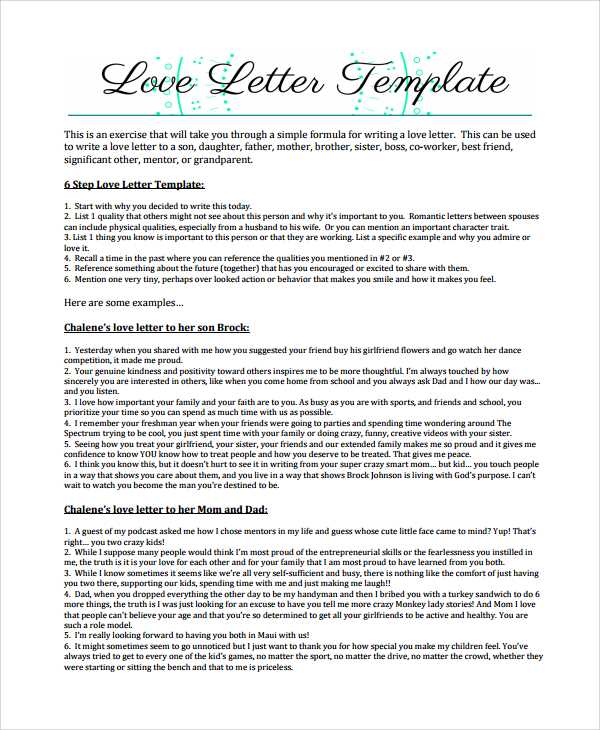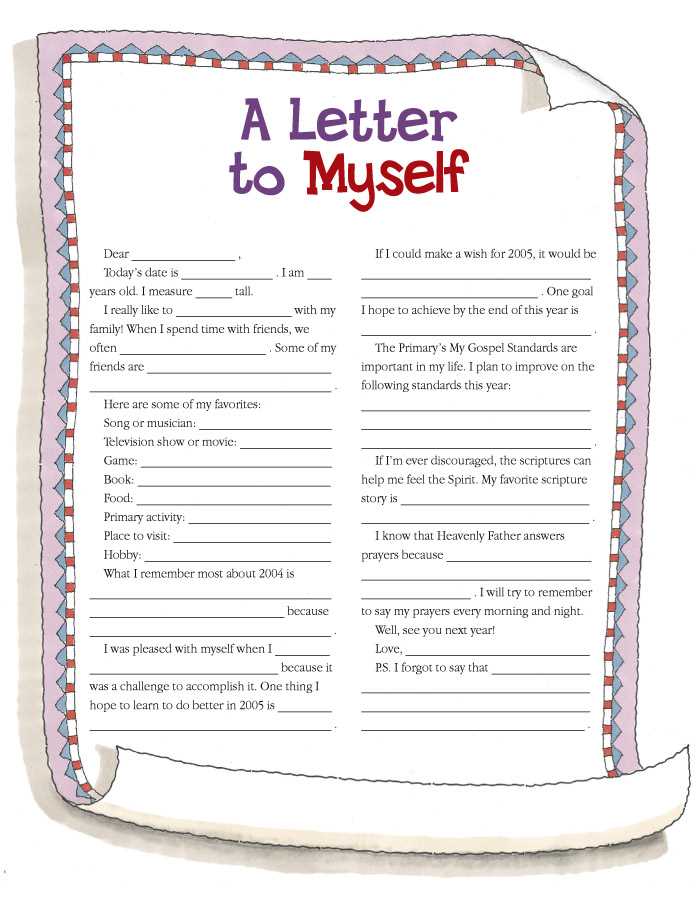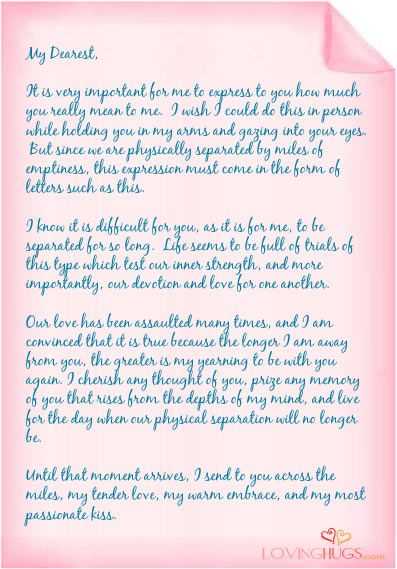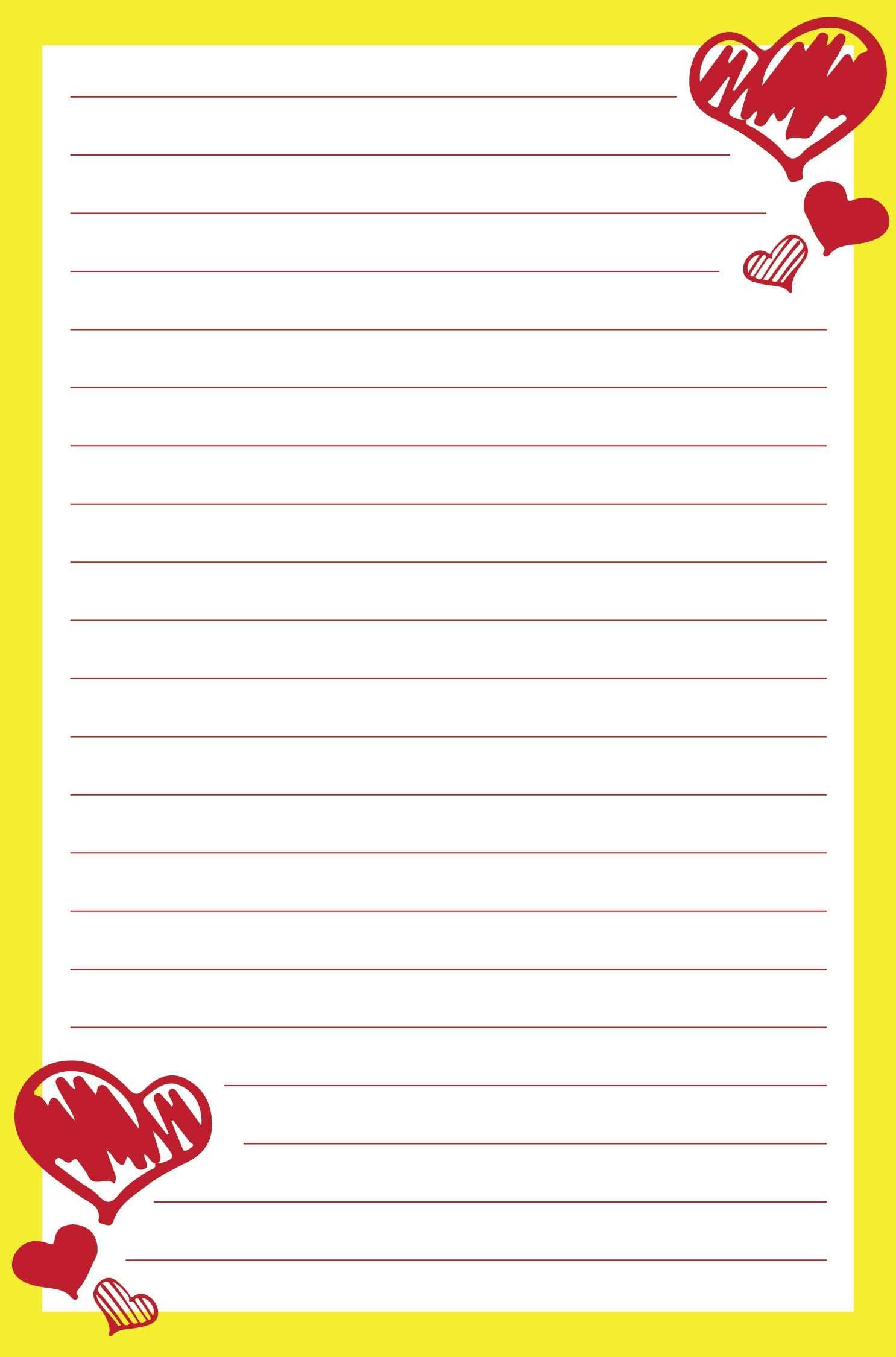Self love letter template

Writing a letter to yourself can be one of the most transformative practices for building self-love. It offers a way to acknowledge your worth, celebrate your achievements, and set positive intentions for your growth. Begin by addressing yourself as if you were writing to a close friend–someone you care deeply for and want to encourage. Start with kind words that acknowledge where you are right now in your life, and move on to what you admire about yourself.
In your letter, don’t shy away from highlighting both your strengths and the qualities you’ve worked hard to develop. Recognize the efforts you’ve made, even the small ones, and give yourself credit where it’s due. This isn’t about perfection; it’s about appreciating the effort and the progress you’ve made. Make sure to express gratitude for your resilience and your ability to face challenges head-on, no matter how difficult they were.
As you write, allow space for self-compassion. Acknowledge the mistakes you’ve made without judgment, and offer yourself forgiveness. Remind yourself that it’s okay to not have everything figured out–growth is a constant process. Close the letter with a statement of intention for the future. Whether it’s a commitment to continue nurturing your self-love, setting boundaries, or working towards new goals, let the letter end on a note of encouragement and motivation for your next chapter.
Self Love Letter Template
Write a letter to yourself that highlights your strengths, your growth, and your unique qualities. Start by acknowledging your efforts, whether big or small, and express gratitude for the things you’ve accomplished. Recognize moments where you’ve pushed through challenges or embraced change with resilience.
1. Recognize Your Strengths
Begin by noting the qualities that make you proud. These could be personal traits, skills, or attributes that have helped you succeed. Focus on the actions or decisions that reflect your inner strength, like how you’ve handled difficult situations or how you’ve stayed true to your values.
2. Express Gratitude for Growth
Take a moment to appreciate the growth you’ve experienced, even if it was in small steps. Acknowledge the learning moments, whether they were through setbacks or achievements. By recognizing your progress, you affirm the positive changes in your life.
Finish your letter with a promise to continue supporting yourself. Offer words of kindness and encourage yourself to keep moving forward. Reassure yourself that you are worthy of all the love and care you give to others.
How to Start Your Self Love Letter: Finding the Right Tone
Begin with kindness and understanding. Speak to yourself as you would to a dear friend–gentle, yet honest. Avoid harsh criticism or unrealistic expectations. Instead, focus on what you appreciate about yourself, your strengths, and your progress. You can set the tone by simply acknowledging where you are right now without judgment.
In your opening, choose words that feel authentic and true to you. Acknowledge any struggles, but make sure they don’t dominate the tone. A few words of encouragement go a long way. For example, instead of writing “I’ve failed many times,” say, “I’ve learned from my challenges.” This keeps the focus on growth rather than on past mistakes.
When you think about the tone, aim for a balance of love and realism. Express gratitude for your resilience and the unique qualities you bring to the world. Avoid exaggerating or sounding too formal. The key is to write from the heart, in a way that feels comfortable and uplifting.
Experiment with starting your letter with a simple, affirming statement like, “I am proud of how far I’ve come” or “I honor my strengths and challenges.” These affirmations help establish a positive tone right from the start, allowing you to continue with confidence and self-compassion.
Choosing Words That Reflect Your Inner Strength

Use words that capture your resilience and determination. Focus on language that highlights your capacity to overcome challenges. Opt for terms like “empowered,” “resilient,” and “grounded.” These words don’t just describe you; they reflect your journey and achievements.
Highlight Your Personal Power
Shift from words that downplay your abilities to ones that assert confidence. Replace phrases like “I try” or “I hope” with “I will” or “I am capable.” By doing so, you assert your inner strength and set an intentional tone for growth.
Avoid Self-Doubt Language
Steer clear of words that diminish your self-worth. Words such as “weak,” “struggle,” or “incapable” don’t belong in a love letter to yourself. Instead, emphasize words that remind you of your tenacity, such as “unyielding,” “steadfast,” or “unstoppable.”
Incorporating these empowering terms into your self-love letter reinforces a mindset rooted in strength and perseverance. Let the words you choose reflect the powerful force within you.
Incorporating Gratitude for Your Achievements and Growth

Recognize your progress by listing specific accomplishments. Reflect on the moments where you’ve pushed through challenges and the growth you’ve gained along the way. Acknowledge how far you’ve come, whether it’s acquiring new skills, mastering a task, or overcoming fears. This is a key step in fostering self-love.
Recognize Milestones
Take note of both big and small milestones. Maybe it was completing a project or learning to say “no” when necessary. Each of these moments contributes to your overall growth. Express gratitude for your ability to reach these points, even if the road wasn’t always easy.
Value the Effort

Appreciate the effort you put into achieving your goals. The process is just as significant as the outcome. Recognize your perseverance, patience, and dedication in every step. These qualities shape your character and reflect your strength, regardless of external results.
Incorporating gratitude for your achievements isn’t about boasting; it’s about honoring your hard work and persistence. You’ve earned every bit of progress, and by acknowledging it, you build a deeper connection with your growth and self-worth.
Addressing Past Struggles Without Blame
Reflect on past challenges with compassion for yourself. Recognize the circumstances that led to difficult moments without focusing on fault. Instead, acknowledge the lessons they brought, the resilience you developed, and the growth you experienced. Understand that mistakes and setbacks don’t define you but are part of the human experience.
Shift Your Perspective
Rather than asking “Why did this happen to me?” ask yourself “What can I learn from this?”. Focus on how each challenge contributed to who you are now. This shift in focus empowers you to move forward with understanding rather than guilt or regret.
Release the Need for Blame
Blame doesn’t help you heal. Let go of the urge to criticize yourself or others for past events. Instead, practice forgiveness – not as a way to excuse actions, but as a means to free yourself from the burden of resentment. This allows you to embrace peace and grow beyond the pain.
Including Affirmations for Future Self-Love
Begin with affirmations that reflect the person you are becoming. Focus on qualities and behaviors you wish to cultivate in the future. Here are some specific affirmations to consider including in your letter:
- “I trust my ability to make wise decisions that support my growth.”
- “I honor my needs and make time for self-care regularly.”
- “I am proud of my achievements and embrace all parts of myself.”
- “I create boundaries that protect my mental and emotional well-being.”
- “I forgive myself for past mistakes and use them as lessons for growth.”
- “I am worthy of all the love and success I am attracting.”
Incorporating these kinds of affirmations will anchor your future self-love in the present. The goal is to speak to your higher potential, guiding you towards the person you want to become. You’re not just affirming who you are today but also planting seeds for tomorrow’s progress.
Make sure your affirmations are specific and rooted in how you want to feel in the future. Use empowering language that reflects your true potential, helping you shift your mindset and align with your goals. Regularly revisit these affirmations to remind yourself of the love and growth you’re dedicated to creating for your future self.
How to Close the Letter with Meaningful Intentions
Wrap up your self-love letter by reaffirming your positive affirmation. Clearly state your commitment to yourself and your growth. It’s essential to express gratitude for the progress you’ve made and your continued dedication to improvement.
End with an empowering message. Use words that inspire a sense of pride in who you are and what you’ve accomplished. Aim for a statement that leaves you feeling uplifted and motivated.
One effective way to finish the letter is to make a promise to yourself. Whether it’s a personal goal or a habit you want to cultivate, affirm your intentions in a way that feels meaningful.
Here’s a simple template to guide you:
| Action | Example |
| Gratitude Statement | “I appreciate the strength I’ve shown in every challenge I’ve faced.” |
| Affirmation of Commitment | “I am committed to loving and accepting myself more every day.” |
| Empowering Statement | “I trust my ability to handle whatever comes my way.” |
| Promise | “I promise to continue pursuing my growth with passion and patience.” |
Ending your letter with a clear and intentional statement will not only bring closure but also reinforce the connection to your inner strength and goals. Keep it genuine, and let your words be a reflection of the care and respect you have for yourself.